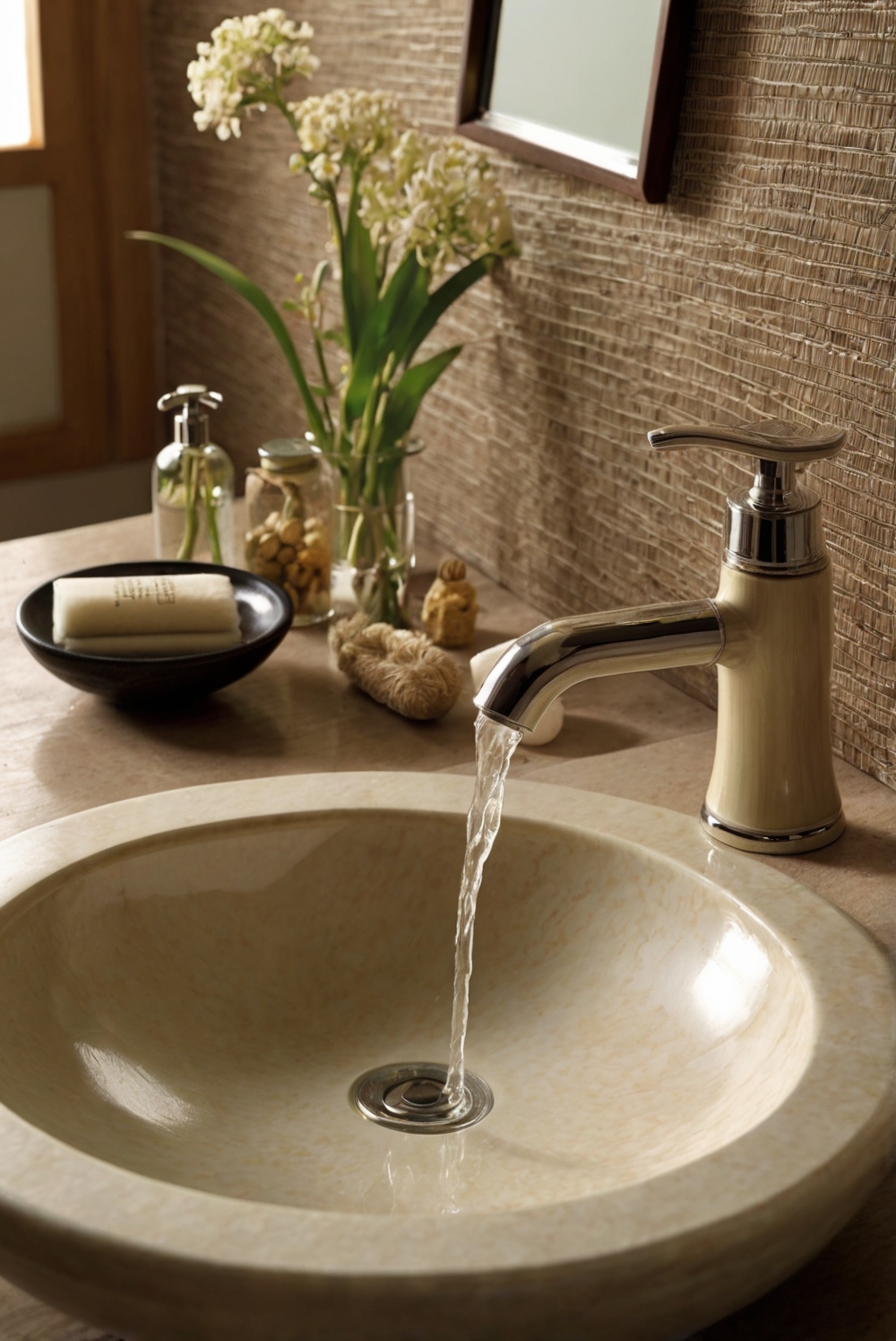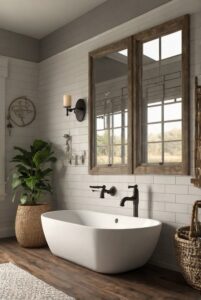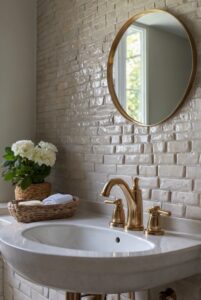Looking to upgrade your bathroom sink with eco-friendly options? Explore sustainable materials like bamboo, recycled glass, and concrete for a stylish and environmentally-conscious design.
What are some eco-friendly options for bathroom sinks?
Wooden Sinks:
Wooden sinks are a sustainable option as they are made from reclaimed or responsibly sourced wood.
Recycled Glass Sinks:
These sinks are made from recycled glass, reducing the need for new resources.
Bamboo Sinks:
Bamboo is a fast-growing and renewable material, making it an eco-friendly choice for sinks.
Concrete Sinks:
Concrete sinks are durable and eco-friendly options that can be customized to fit your space.
Using eco-friendly sinks not only adds a touch of style to your bathroom but also contributes to sustainable living practices. By choosing these options, you can create a beautiful and environmentally conscious space in your home.
What are some eco-friendly options for bathroom sinks?
Choosing an eco-friendly bathroom sink is a great way to reduce your environmental impact and promote sustainability. Here are some options to consider:
Bamboo Sinks:
Bamboo sinks are a stylish and sustainable choice for eco-conscious consumers. Bamboo is a fast-growing renewable resource that requires minimal water and pesticides to grow. Bamboo sinks are durable, easy to clean, and biodegradable, making them an excellent eco-friendly option for your bathroom.
Recycled Glass Sinks:
Recycled glass sinks are made from post-consumer glass, such as old bottles and windows, that would otherwise end up in landfills. These sinks are not only environmentally friendly but also stunningly beautiful. Recycled glass sinks come in a variety of colors and styles, adding a unique touch to your bathroom while helping the planet.
Concrete Sinks:
Concrete sinks are a durable and eco-friendly choice for bathroom sinks. Concrete is a long-lasting material that can be recycled and reused. Concrete sinks are customizable, allowing you to create a unique design that fits your style. By choosing a concrete sink, you are reducing the demand for new raw materials and promoting sustainability in your home.
Wood Sinks:
Wood sinks are another eco-friendly option for bathroom sinks. Reclaimed wood sinks are made from salvaged wood that would otherwise be discarded. These sinks have a natural beauty and warmth that adds character to your bathroom. Wood sinks are biodegradable and can be recycled, making them a sustainable choice for environmentally conscious consumers.
Cast Iron Sinks:
Cast iron sinks are a classic and eco-friendly choice for bathroom sinks. Cast iron is a durable material that can last for generations. These sinks are recyclable and can be repurposed, reducing waste and promoting sustainability. Cast iron sinks come in a variety of styles and finishes, making them a versatile option for eco-conscious homeowners.
In conclusion, when choosing an eco-friendly bathroom sink, consider options such as bamboo sinks, recycled glass sinks, concrete sinks, wood sinks, and cast iron sinks. These choices not only help reduce your environmental impact but also add style and character to your bathroom. By opting for sustainable materials and designs, you can create a greener and more eco-friendly home.
1. What are some eco-friendly materials for bathroom sinks?
Eco-friendly materials for bathroom sinks include recycled glass, bamboo, reclaimed wood, and concrete. These materials are sustainable and reduce the environmental impact of your bathroom. Recycled glass sinks are made from old glass bottles and windows, while bamboo sinks are made from fast-growing, renewable bamboo plants. Reclaimed wood sinks give a rustic touch to your bathroom and help prevent deforestation. Concrete sinks are durable and can be made with recycled materials, making them a long-lasting eco-friendly option.
2. How can I save water with an eco-friendly bathroom sink?
To save water with an eco-friendly bathroom sink, consider installing a low-flow faucet or aerator. These devices reduce water usage without compromising water pressure. Additionally, choosing a smaller sink size can help minimize water waste. It’s also important to fix any leaks promptly to prevent water wastage. By incorporating these water-saving measures, you can reduce your water consumption and contribute to a more sustainable bathroom.
3. Are there any energy-efficient options for bathroom sinks?
Yes, there are energy-efficient options for bathroom sinks that can help reduce your energy consumption. Installing LED lighting around your sink area can save energy compared to traditional incandescent bulbs. Additionally, choosing a sink with a motion-sensor faucet can help prevent water waste by automatically shutting off when not in use. You can also opt for a sink made from recycled materials, which reduces the energy required for manufacturing new products. By selecting energy-efficient options for your bathroom sink, you can decrease your carbon footprint and save on energy costs.
4. How can I make my bathroom sink more sustainable?
To make your bathroom sink more sustainable, consider incorporating eco-friendly design elements and products. Choose a sink made from recycled or renewable materials, such as recycled glass or bamboo. Install a water-saving faucet or aerator to reduce water usage. Additionally, use non-toxic cleaning products to maintain your sink without harming the environment. Implementing these sustainable practices can help create a more eco-friendly bathroom sink that aligns with your commitment to environmental conservation.
5. What are the benefits of choosing an eco-friendly bathroom sink?
Choosing an eco-friendly bathroom sink offers numerous benefits, including reducing your environmental impact, conserving natural resources, and promoting sustainability. Eco-friendly sinks are often made from recycled or renewable materials, which help decrease waste and support a circular economy. These sinks also tend to have a lower carbon footprint compared to traditional sinks, making them a greener choice for your home. By selecting an eco-friendly bathroom sink, you can contribute to a healthier planet and create a more sustainable living space for yourself and future generations.




